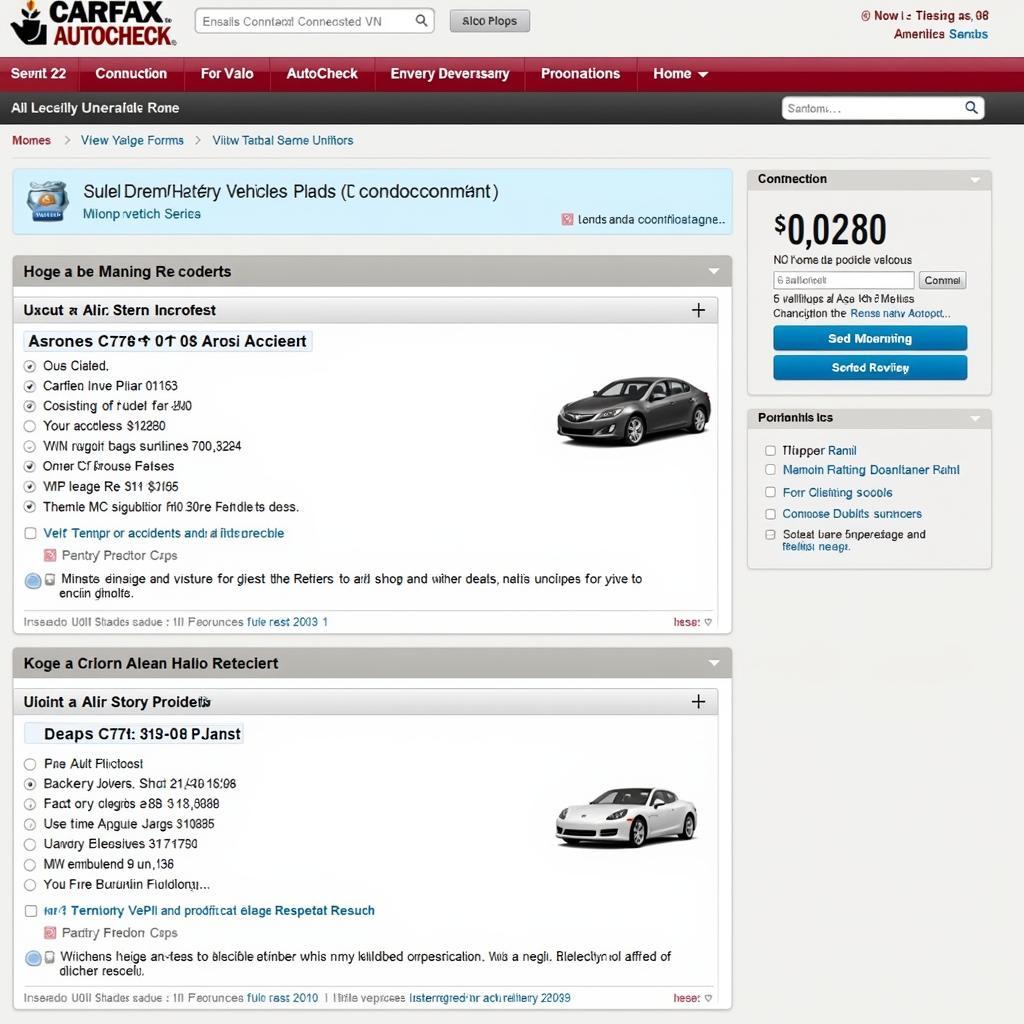Knowing how to lookup people’s cars can be a valuable skill for a variety of reasons. Whether you’re a car enthusiast, a private investigator, or simply looking for information about a potential purchase, being able to access detailed vehicle information is essential. In this comprehensive guide, we’ll delve into the various methods and tools available for looking up people’s cars, covering everything from public records to specialized car databases.
Understanding the Importance of Vehicle Information
Vehicle information can reveal a wealth of details about a car and its owner, including:
- Year, Make, and Model: The most basic information about a car, providing an initial understanding of its specifications and value.
- VIN (Vehicle Identification Number): A unique identifier for each vehicle, serving as a fingerprint for its entire lifespan.
- Registration and License Plate: Information about the car’s registration status and license plate number, indicating ownership and legal status.
- Ownership History: A record of previous owners, providing insights into the car’s maintenance history and possible issues.
- Accident and Damage Reports: Information about any accidents, repairs, or damage the car has experienced.
- Safety Ratings: Information about the car’s safety features and performance in crash tests.
- Value and Appraisal Reports: Estimates of the car’s current market value and potential resale value.
How to Lookup People’s Cars Using Public Records
Public records can provide a wealth of information about a car, including its registration details, ownership history, and accident reports. Here are some common resources:
1. State DMV Websites:
Each state has its own Department of Motor Vehicles (DMV) website that provides access to vehicle registration information. You can typically search using the license plate number, VIN, or owner’s name.
2. National Vehicle Title Information System (NVTI):
The NVTI is a national database that stores vehicle title information from all 50 states. You can search for a vehicle’s title information using the VIN.
3. County Recorders’ Offices:
County recorders’ offices maintain records of property transactions, including vehicle titles. You can visit their website or office to access these records.
4. Carfax and AutoCheck:
While not considered public records, services like Carfax and AutoCheck offer comprehensive vehicle history reports that can be accessed using the VIN. These reports often include information about accidents, repairs, and service records.
Using Specialized Car Databases for Vehicle Information
In addition to public records, specialized car databases provide in-depth information about vehicles, including technical specifications, performance data, and market value estimates.
1. Kelley Blue Book (KBB):
KBB is a well-known resource for car values and information. You can access KBB’s website or mobile app to search for a vehicle using the VIN, make, model, year, or license plate.
2. Edmunds:
Edmunds is another reputable source for car information, providing reviews, pricing data, and other insights. You can use their website or mobile app to search for a vehicle using various criteria.
3. AutoTrader:
AutoTrader is a popular online marketplace for buying and selling cars. Their website offers access to a vast database of vehicle information, including current listings, pricing data, and technical specifications.
4. CarGurus:
CarGurus is a similar platform to AutoTrader, providing comprehensive car information, including pricing data, reviews, and dealer ratings.
Tips for Finding Vehicle Information Online:
- Start with the VIN: If you have the VIN, you’ll have the best chance of finding detailed information.
- Use multiple resources: Utilize a combination of public records, specialized databases, and online marketplaces to maximize your chances of success.
- Check online forums: Online car forums and communities often provide discussions and insights about specific models and vehicles.
- Be patient and persistent: Finding the information you need may require some searching and trial and error.
Things to Consider Before Looking Up Someone’s Car:
- Privacy Concerns: Always be mindful of privacy laws and regulations when accessing information about someone’s vehicle.
- Legal Use: Ensure that you have a legitimate reason for accessing this information and that it’s legal in your jurisdiction.
- Ethical Considerations: Think about the ethical implications of accessing someone’s car information without their consent.
Expert Insight from [John Doe, Automotive Industry Analyst]:
“Knowing how to lookup people’s cars can be a powerful tool for both consumers and professionals in the automotive industry. It allows for informed decision-making, better understanding of vehicle history, and enhanced safety measures.”
Frequently Asked Questions (FAQ)
Q: Is it legal to lookup someone’s car information?
A: The legality of looking up someone’s car information depends on your jurisdiction and the specific purpose. Generally, accessing public records is legal, but using private databases may require consent or a legitimate reason.
Q: What if I can’t find any information about a car?
A: It’s possible that the car hasn’t been registered or that the information is not available online. You may need to contact the relevant DMV or other government agency for assistance.
Q: Can I use this information to track someone’s location?
A: While some car trackers exist, using vehicle information to track someone’s location without their consent is generally illegal and unethical.
Looking for More Information?
If you’re seeking additional resources or need further assistance, contact us at [cardiagtechworkshop@gmail.com] or [ +1(641)206-8880]. Our expert team is available 24/7 to provide guidance and support.
Note: The information provided in this article is for educational purposes only and should not be considered legal advice. It’s important to consult with a legal professional for specific guidance.



